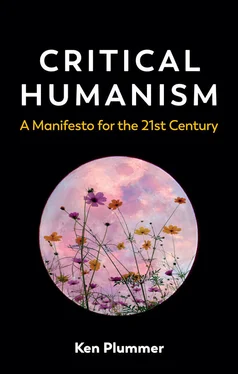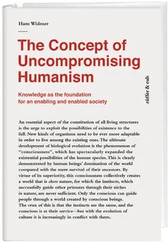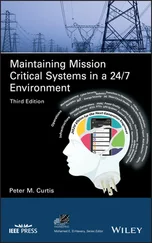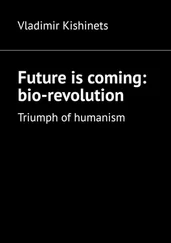1 ...6 7 8 10 11 12 ...15 And yet, all of this brings problems. As literary critic Lionel Trilling once strikingly remarked: ‘Some paradox in our nature leads us, once we have made our fellowmen the objects of our enlightened interest, to go on to make them the objects of our pity, then of our wisdom, ultimately of our coercion.’ 42There are paradoxes and problems with benevolence. To take one example: Tony Vaux had had more than twenty years’ experience as one of Oxfam’s leading emergency programme coordinators. It took him through Kosovo, Ethiopia, Sudan, Mozambique, Afghanistan, Somalia, Bosnia and Rwanda – all key emergency sites at the end of the twentieth century. The title of his book, The Selfish Altruist , suggests the irony of his work:
Looking at situations such as the famine in Ethiopia we may conclude that humanitarianism … has not always been as altruistic as it should. Ideological prejudices clouded judgement of aid workers in Ethiopia and they did not see the imminence of famine. Aid workers in Sudan battled against the war mentality but overlooked the marginalisation of women. In Mozambique an obsession with white South African power deafened us to the roar of our own power. In Afghanistan personal and organisational interests masqueraded as principle. In Somalia we were too self-righteous about good intentions and did not listen enough. In the post-communist world, we could not rationally limit our response. In Rwanda we hid from the fallibility of our own humanity. And in Kosovo, we let our human concern be swept away on a political tide. 43
Worse still, contemporary humanitarianism, in its rush to help those in distressed conflict situations, often find themselves perpetuating or amplifying wars – creating a kind of cosmopolitan dystopia. 44Didier Fassin’s important study, Humanitarian Reason: A Moral History of the Present , clarifies all this; he takes us to the intellectual hub of this issue. Writing as a physician social scientist, a critical thinker who works in the field (sometimes for Médecins Sans Frontières (MSF)), Fassin notes:
A remarkable paradox deserves our attention here. On the one hand, moral sentiments are focused mainly on the poorest, most unfortunate, most vulnerable individuals: the politics of compassion is a politics of inequality. On the other hand, the condition of possibility of moral sentiments is generally the recognition of others as fellows: the politics of compassion is a politics of solidarity. This tension between inequality and solidarity, between a relation of dominance and a relation of assistance is constitutive of all humanitarian governance. 45
Here we see that paradoxes run deep: between self-interest and altruism, dominance and assistance, care and regulation, kindness and violence. There is a political hierarchy within the workings behind humanitarianism. All is not quite as wonderful with humanitarianism as might initially seem to be the case.
Much humanism has developed ideas around the rights of human beings. In modern times, these are embodied in purest form in the Universal Declaration of Human Rights (UDHR; originating in Paris at the United Nations General Assembly meeting in December 1948). 46The document asserts:
recognition of the inherent dignity and of the equal and inalienable rights of all members of the human family is the foundation of freedom, justice and peace in the world … [D]isregard and contempt for human rights have resulted in barbarous acts which have outraged the conscience of mankind, and the advent of a world in which human beings shall enjoy freedom of speech and belief and freedom from fear and want has been proclaimed as the highest aspiration of the common people.
Here, core notions of equality, justice, freedom, peace, dignity and rights are all brought centre stage in a document that haunts all major contemporary humanist thought and writing. In one clear sense, this movement for ‘rights’ can be seen as a tremendous success; it has established a universal language that has gradually moved across the world over the past half century. And there is much evidence of a sort of success: a ‘justice cascade’. 47The world has become infused with a human rights culture, some even claiming that it has radically changed the nature of our human world. With the idea of rights, humanity has been given a major common language, an equality of dignity for all. And it has provided a strategy for political change that has already had far-reaching consequences for the lives of many peoples all around the world. 48Given that the document was only introduced seventy years ago, it has achieved much, and for a wide variety of groups. Box 1.2suggests a little of this.
Despite considerable achievements in a very short period of time, human rights are under attack from many directions. First, some major countries (including Russia and China) have in practice shown little interest or regard for human rights (they also take little interest in the United Nations or use it for their own ends). Most recently, the USA, under President Donald Trump, stopped using the language of rights; Trump publicly expressed his dislike of the UN on a number of occasions, even withdrawing from the World Health Organization (WHO). But there have also been many schisms and factions within the UN, leading to blocks of voting against rights. For example, although there has been considerable action for women’s world rights, there have also been alliances between Catholic and Muslim countries to prevent advances on certain issues (like health and reproductive rights). Likewise, gay and lesbian issues are on the agenda, as are protocols from the Yogyakarta Principles; but religious alliance (between Muslims and Christians) have again prevented any advance in this area.
Many academics have also highlighted human rights failures. Samuel Moyn claims that human rights campaigns have deflected attention from world inequalities; Philip Cunliffe suggests they have led to a cosmopolitan dystopia; and Stephen Hopgood suggests: ‘We are on the verge of the imminent decay of the Global Human Rights Regime.’ 51But most seriously, human rights are seen as a Western invention, another form of colonialism, forcing many countries once more to fall in line with Western ideals. This means that, for example, although the struggles faced by non-Western women are different from those of Western women, they are being colonized by Western rights feminism. Likewise, the Western way of being gay, lesbian and queer is being universalized. Specific cultural differences and problems of being a woman or gay become undermined as the world is shaped by the ideals of Western feminists and queers. In addition, indigenous peoples have not, until very recently, been recognized as having rights. 52
Box 1.2:An expanding concern over human rights
Debates on ‘rights’ have expanded from individual rights to collective rights; 49and this has meant the gradual inclusion of different groups and people into the official world orbit of what it means to be human, alongside the monitoring of their progress. Full of controversy, they are still not always fully recognized in practice. 50
Children In 1946, UNICEF was established; in 1959, the Declaration of the Rights of the Child; in 1989, Convention on the Rights of the Child.
Women International Year of Women, 1975; Decade of Women, 1976–85. The Beijing Platform for Action, adopted at the 1995 Fourth World Conference on Women, included ‘the elimination of all forms of violence against women’ as a key objective. The Beijing Declaration and Platform for Action at the 23rd special session of the UN General Assembly, 2000. The creation of UN Women, and the monitoring of their progress in the world: https://www.un.org/en/chronicle/article/brief-survey-womens-rights.
Читать дальше












